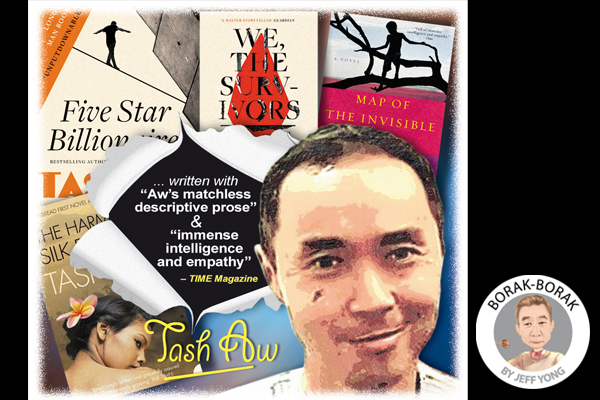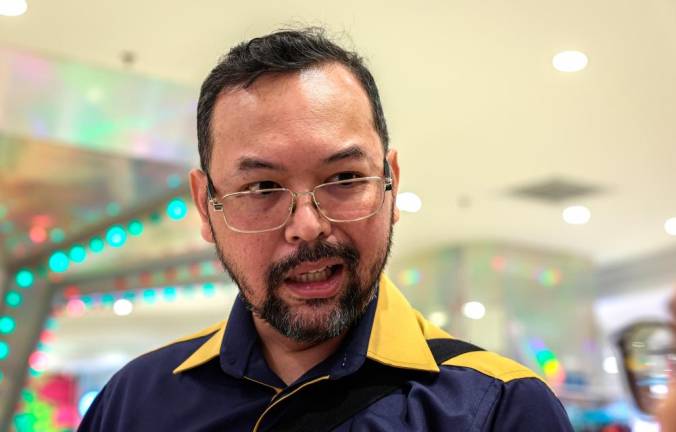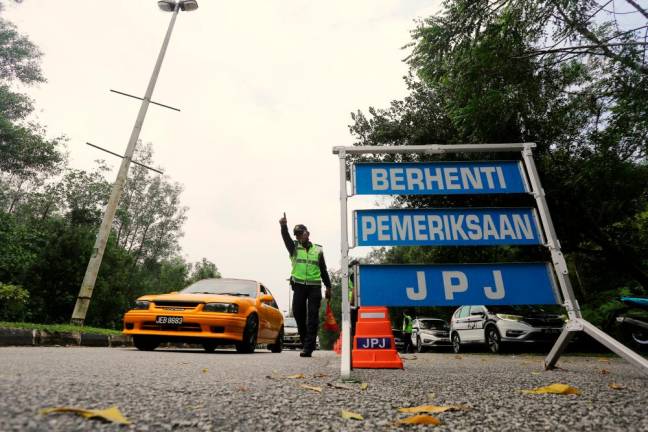BY JEFF YONG
RECENTLY, I floated into the presence of Tash Aw. He is one of the very few Malaysian and Southeast Asian authors holding court on the world stage.
Thanks to Ang Seng Oo, my classmate from primary school, I was invited to a getting-to-know-you session arranged by Tash’s dad, Eng Sun.
I guessed being a media scribbler enabled little ordinary me to be among those lucky few at the session. It also helped that I am a Hainanese, as Tash is also from the same dialect group. And of Wenchang stock too, from north-eastern Hainan!
Mind you, Madame Sun Yat-sen and Madame Chiang Kai-shek – two of China’s famous Soong sisters – also hailed from there.
When I first read about Tash, I was in awe of his flightpath into literary stardom.
Despite having millions of fans around the world, this well-known writer has no airs about him and immediately put me – a tiny fish in a small, murky pond – at ease.
This 47-year-old ‘sukhee’ (or ‘neighbour’, as Hainanese are often predisposed to regard anyone from the same dialect group) was down-to-earth in his responses about his writing.
I got several useful tips. Isn’t that a good head-start should I want to switch horses (not exactly midstream, but more towards my twilight years) now?
Tash laid much emphasis on discipline and consistency. Writing up to five to six hours a day at one go for several days is the norm for him, adding that “I’ve got to keep going at it”.
In other words, this guy works very hard although he gets paid handsomely to do what he likes best.
Tash also implied the need to be perceptive. This was after I asked him where he had learned to write about sinister characters.
Breaking into a smile, he said he had amassed in his mind a rich treasure trove of unsavoury characters from his sekolah rendah and sekolah menengah kebangsaan years!
Being an ex-business journalist, even if I sounded silly, I had to ask him the inevitable: the difference between fiction (his forte) and non-fiction (also his forte, as he also writes articles and commentaries for top-end publications these days).
Fiction, he said, enables the writer to have greater leeway and explore his creativity to the full by weaving the story to whatever outcome that he would like to make.
In non-fiction or journalism, more often than not, one has to stick to the facts, or on the decided outcome. That definitely set my mind whirring.
I also spoke to his dad on how he felt when Tash announced that he was leaving his legal practice for the writing world.
Eng Sun said there was much disquiet initially, but Tash assured that his passion and talent will pull him through, and he still has his legal training to fall back on if things don’t work out.
True to his word, Tash didn’t disappoint but made his parents even prouder.
Instead of just being another lawyer in London, he is now a highly-acclaimed author known throughout the literary world.
His first novel, The Harmony Silk Factory (2005), won many prestigious literary awards right from the start.
His second novel, Map of the Invisible World (2009), was described by Time magazine as “a complex, gripping drama of private relationships”, and written with “Aw’s matchless descriptive prose” and “immense intelligence and empathy”.
His 2013 novel, Five Star Billionaire, was longlisted for the 2013 Man Booker Prize and he has just released We, the Survivors.
Aw cites his literary influences as Joseph Conrad, Vladimir Nabokov, Anthony Burgess, William Faulkner and Gustave Flaubert.
Oh dear. With just Ian Fleming (of James Bond fame) as my only source of inspiration and perhaps John Updike, I better add Tash Aw to my list. Wish me luck on my new journey!
Jeff Yong, after making his mark in the twisty maze of mainstream journalism, has finally decided to enjoy what he does best – observing the unusual and recounting the gleeful. He can be contacted at lifestyle.borak@gmail.com.













